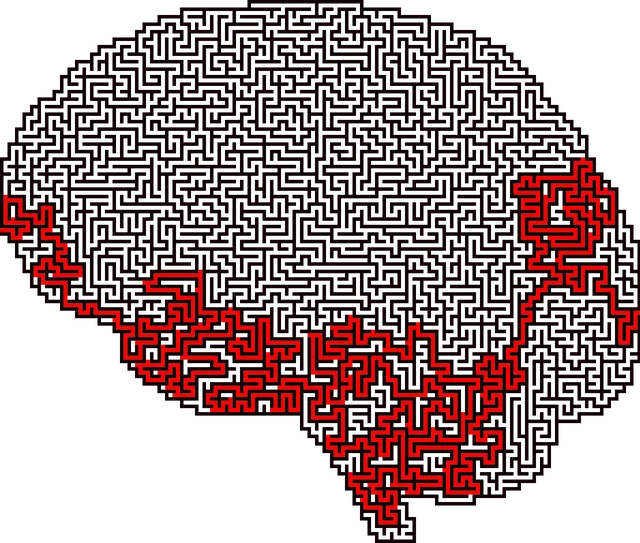The Crisis Intervention Teams (CITs) at the Kaiser Permanente mental health facility in Lafayette play a crucial role in managing high-risk situations, utilizing evidence-based practices like Mind Over Matter Principles and Risk Management Planning. Trained to prioritize individual safety and dignity, CITs address systemic issues through policy analysis and advocacy while providing comprehensive support for severe emotional distress and psychotic episodes. The Lafayette facility offers ideal training conditions with hands-on experiences, role-playing scenarios, and workshops replicating diverse community situations, ensuring graduates are prepared to handle critical situations professionally. This holistic approach enhances patient safety, improves outcomes, and promotes staff resilience by integrating self-care practices and self-awareness exercises.
“Crisis intervention teams (CITs) play a pivotal role in healthcare settings, especially at facilities like Kaiser Permanente Mental Health Facility Lafayette. This article delves into the essential training programs that equip professionals with the skills to navigate and de-escalate crises effectively. We explore key components of CIT training, including communication strategies, risk assessment, and team coordination.
By examining real-world examples, such as the Lafayette facility’s unique approach, we highlight the profound benefits and impact of certified CITs in enhancing patient care, staff safety, and overall organizational resilience.”
- Understanding Crisis Intervention Teams: A Overview
- Kaiser Permanente Mental Health Facility Lafayette: The Setting for Training
- Key Components of Effective Crisis Intervention Team Training Programs
- Benefits and Impact of Certified Crisis Intervention Teams in Healthcare Settings
Understanding Crisis Intervention Teams: A Overview

Crisis Intervention Teams (CITs) are specialized groups designed to provide immediate support during mental health crises. These teams typically consist of trained professionals, including law enforcement officers, paramedics, and mental health specialists, who collaborate to de-escalate high-risk situations safely. At Kaiser Permanente’s mental health facility in Lafayette, such teams play a pivotal role in ensuring the well-being of individuals experiencing severe emotional distress or psychotic episodes.
The Mind Over Matter Principles guide CITs in their approach, emphasizing a person-centered, trauma-informed care model. By integrating these principles with effective Risk Management Planning for Mental Health Professionals, CIT members can navigate complex scenarios while prioritizing both individual safety and dignity. Furthermore, understanding the broader context of Mental Health Policy Analysis and Advocacy is crucial, as it allows teams to recognize systemic issues contributing to crises and advocate for improved services within their communities.
Kaiser Permanente Mental Health Facility Lafayette: The Setting for Training

The Kaiser Permanente Mental Health Facility in Lafayette serves as an ideal setting for crisis intervention team (CIT) training programs. This facility is renowned for its comprehensive mental health services, providing a real-world context for trainees to practice and refine their skills. The environment fosters a deep understanding of the challenges and complexities associated with responding to mental health crises.
Here, participants engage in hands-on training, role-playing scenarios, and workshops that replicate diverse situations encountered in the community. With access to experienced professionals and a supportive network, trainees gain valuable insights into effective communication strategies, crisis de-escalation techniques, and trauma support services, all essential components of successful CIT training. This immersive experience, coupled with the facility’s dedicated team, ensures that individuals leaving the program are well-prepared to handle critical situations with confidence and professionalism.
Key Components of Effective Crisis Intervention Team Training Programs

Effective crisis intervention team training programs at facilities like the Kaiser Permanente mental health facility in Lafayette are multifaceted and crucial for fostering a supportive environment. Key components include comprehensive Stress Management Workshops, tailored to equip team members with practical techniques to address acute situations. These workshops not only enhance individual Emotional Well-being Promotion Techniques but also build resilience against workplace stress, a critical aspect of maintaining a healthy work environment.
Moreover, integrating Self-Awareness Exercises into the training regimen is vital for fostering empathy and understanding among team members. By promoting self-awareness, these exercises encourage active listening and prompt teams to consider diverse perspectives during crises, enhancing their overall effectiveness in supporting individuals facing mental health challenges.
Benefits and Impact of Certified Crisis Intervention Teams in Healthcare Settings

Certified Crisis Intervention Teams (CITs) play a pivotal role in healthcare settings, particularly at mental health facilities like Kaiser Permanente in Lafayette. The primary benefit lies in their ability to swiftly and effectively manage acute crises, thereby enhancing patient safety and outcomes. CITs are equipped to handle diverse situations, from suicidal ideation to severe psychiatric agitation, through evidence-based interventions. This specialized training equips healthcare providers with essential tools to support not only patients but also themselves, as crisis intervention can be emotionally taxing.
Moreover, implementing CITs promotes a culture of resilience and self-care among staff. By integrating burnout prevention strategies for healthcare providers, such as Self-Care Practices and Self-Awareness Exercises, these teams foster an environment that prioritizes mental well-being. This holistic approach not only prevents professional burnout but also improves patient care by ensuring that healthcare providers are at their best, enabling them to offer compassionate, skilled support in moments of crisis.
Crisis intervention team (CIT) training programs, exemplified by initiatives at the Kaiser Permanente mental health facility in Lafayette, play a pivotal role in enhancing healthcare settings’ ability to manage crises effectively. By focusing on key components such as communication skills, de-escalation techniques, and collaborative care, these programs empower teams to provide immediate and compassionate support to individuals in distress. The benefits are profound: improved patient outcomes, reduced staff stress, and enhanced community trust. Certified CITs in healthcare settings serve as a testament to the transformative power of training, fostering safer and more supportive environments for both patients and providers alike.






